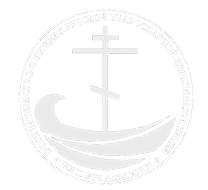Cholera epidemic in Haiti: battling rumors, voodoo and free antibiotics
January 24, 2011
New York - Battling the cholera epidemic in Haiti alongside the ROCOR mission in Haiti involved many difficulties Lars Stuewe, a volunteer and a medical practitioner working with the Fund for Assistance, could not have been prepared for: political unrest in the country, an almost total lack of knowledge about the disease on the part of the locals, and an abundance of rumors circulating in the country.
At the end of December 2010 Stuewe returned from a three-week trip to Haiti, where he educated members of all seven ROCOR parishes on the way to prevent cholera.
The mission’s initial plan of organizing a clinic did not work out, as supplies purchased by FFA were delayed on the Haitian border, and there were no nurses available in Haiti. The most pressing need at the time was health education and prevention of cholera, and here the mission’s administration decided to concentrate its efforts.
How did you find the situation when you got there?
We applied for supplies with ACT (All Churches Together – non-profit organization) and the World Health Organization. Once we received them, we visited all seven parishes, organized education and prevention classes, distributed health promotion items, health education materials, posters, brochures and comic leaflets, distributed soap, aqua tabs and Clorox. We educated about 1,200 families, which is about 3200 people in our community.
Why was it so important to educate locals about the disease?
Haitians have no knowledge about cholera. The news and public education on TV and radio only focused on using clean water. People were not told that cholera can be transmitted through other fluids, food, flies and feces.
It was clear that people were not washing their hands, especially little children. There are no public toilets, and people relieve themselves on the streets. Flies were flying from the feces onto food or open water places.
There are so many things that people were not aware of. There is only 1 health educator per 4,700 at the moment. Some areas don’t have TV and radio and electricity is only available a few hours a day, so the education is very restricted.
The other problem that parishioners complained about is that they don’t have enough money to buy aqua tabs, Clorox and soap in the quantities they need. They were very happy when we came with supplies and when they could ask questions. From our point of view, some of the questions were very silly, like “Is the fish affected with cholera?”
Also, people believe that medicine cures them, not safe practices. Haitians believe in taking antibiotics as a precaution. That makes treatment a lot more difficult and increases the risk of fatality.
Where do they get the antibiotics?
On the street – there is no regulations for medical distribution. There are people running around on the streets with “shops” on their heads selling tablets. Anyone can open a pharmacy. There is no notion of prescription-only medication.
How are the mission members?
Initially, they seemed to feel that everyone forgot about them. Before we came to educate parishioners about cholera, nobody came to help them, apart from the Leogane parish. The parishioners who were sick with cholera are now all cured and returned to their families.
What about the school for the disabled children, Home of Love (Foyer d’Amour)?
Everything is ok. The school is very clean. Matushka Rose is exhausted. She is always cleaning the floors of the school with Clorox, the facilities and supervising everything in the school. It must be exhausting.
The ACT (All Churches Together) provided chemical toilets for the kids, but unfortunately they are not special ones for the disabled.
Sadly, the stigma for disability is very high. Matushka Rose told me that a pregnant woman was afraid of entering the property of the school for fear that her child might also be born disabled. Also, there was a program on TV saying that the disabled were responsible for spreading the disease. Matushka Rose was very angry when she heard that on TV.
There were lots of other rumors discussed on TV and radio: that voodoo practitioners were adding some kind of powder to water that spread the disease. We had to ask mission members not to believe everything they hear on the news, or any rumors people are spreading.
How are the priests?
They are working day and night, advising local parish leaders, they conduct daily business with their schools and churches.
There are many cluster meetings for water and sanitation, for example, set up by the UN, all NGOs meet and exchange information and resources they can share. There is a lot of administrative work the fathers cannot possibly do by themselves.
Both fathers are not showing their exhaustion, they want to appear strong for the good of their flock. But I think because of all the work they’ve been doing, 16 hours every day, and that for 17 weeks now.
They were very pleased that they got professional medical help. The prevention and educational classes were very successful: we have no new cases in our community. Normally for one old case, CTUs and CTCs have 1 or 2 new cases.
New York - Battling the cholera epidemic in Haiti alongside the ROCOR mission in Haiti involved many difficulties Lars Stuewe, a volunteer and a medical practitioner working with the Fund for Assistance, could not have been prepared for: political unrest in the country, an almost total lack of knowledge about the disease on the part of the locals, and an abundance of rumors circulating in the country.
At the end of December 2010 Stuewe returned from a three-week trip to Haiti, where he educated members of all seven ROCOR parishes on the way to prevent cholera.
The mission’s initial plan of organizing a clinic did not work out, as supplies purchased by FFA were delayed on the Haitian border, and there were no nurses available in Haiti. The most pressing need at the time was health education and prevention of cholera, and here the mission’s administration decided to concentrate its efforts.
How did you find the situation when you got there?
We applied for supplies with ACT (All Churches Together – non-profit organization) and the World Health Organization. Once we received them, we visited all seven parishes, organized education and prevention classes, distributed health promotion items, health education materials, posters, brochures and comic leaflets, distributed soap, aqua tabs and Clorox. We educated about 1,200 families, which is about 3200 people in our community.
Why was it so important to educate locals about the disease?
Haitians have no knowledge about cholera. The news and public education on TV and radio only focused on using clean water. People were not told that cholera can be transmitted through other fluids, food, flies and feces.
It was clear that people were not washing their hands, especially little children. There are no public toilets, and people relieve themselves on the streets. Flies were flying from the feces onto food or open water places.
There are so many things that people were not aware of. There is only 1 health educator per 4,700 at the moment. Some areas don’t have TV and radio and electricity is only available a few hours a day, so the education is very restricted.
The other problem that parishioners complained about is that they don’t have enough money to buy aqua tabs, Clorox and soap in the quantities they need. They were very happy when we came with supplies and when they could ask questions. From our point of view, some of the questions were very silly, like “Is the fish affected with cholera?”
Also, people believe that medicine cures them, not safe practices. Haitians believe in taking antibiotics as a precaution. That makes treatment a lot more difficult and increases the risk of fatality.
Where do they get the antibiotics?
On the street – there is no regulations for medical distribution. There are people running around on the streets with “shops” on their heads selling tablets. Anyone can open a pharmacy. There is no notion of prescription-only medication.
How are the mission members?
Initially, they seemed to feel that everyone forgot about them. Before we came to educate parishioners about cholera, nobody came to help them, apart from the Leogane parish. The parishioners who were sick with cholera are now all cured and returned to their families.
What about the school for the disabled children, Home of Love (Foyer d’Amour)?
Everything is ok. The school is very clean. Matushka Rose is exhausted. She is always cleaning the floors of the school with Clorox, the facilities and supervising everything in the school. It must be exhausting.
The ACT (All Churches Together) provided chemical toilets for the kids, but unfortunately they are not special ones for the disabled.
Sadly, the stigma for disability is very high. Matushka Rose told me that a pregnant woman was afraid of entering the property of the school for fear that her child might also be born disabled. Also, there was a program on TV saying that the disabled were responsible for spreading the disease. Matushka Rose was very angry when she heard that on TV.
There were lots of other rumors discussed on TV and radio: that voodoo practitioners were adding some kind of powder to water that spread the disease. We had to ask mission members not to believe everything they hear on the news, or any rumors people are spreading.
How are the priests?
They are working day and night, advising local parish leaders, they conduct daily business with their schools and churches.
There are many cluster meetings for water and sanitation, for example, set up by the UN, all NGOs meet and exchange information and resources they can share. There is a lot of administrative work the fathers cannot possibly do by themselves.
Both fathers are not showing their exhaustion, they want to appear strong for the good of their flock. But I think because of all the work they’ve been doing, 16 hours every day, and that for 17 weeks now.
They were very pleased that they got professional medical help. The prevention and educational classes were very successful: we have no new cases in our community. Normally for one old case, CTUs and CTCs have 1 or 2 new cases.
Share This:
|



